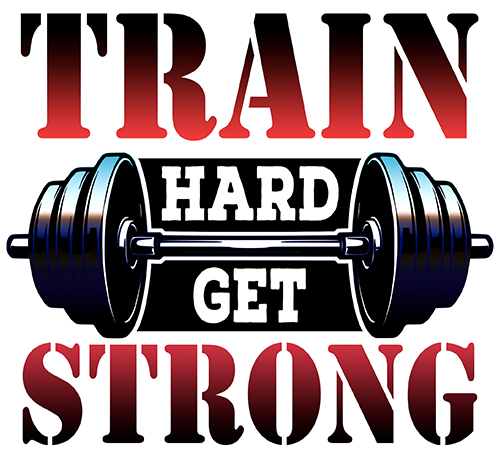Here’s a Sprints and Speed Program designed to improve your sprinting speed, acceleration, and overall athletic performance. This program focuses on improving both short-distance sprints (acceleration) and long-distance speed (max velocity), with a focus on technique, power, and explosiveness.
Goal: Increase sprinting speed, improve acceleration, and enhance running form. This program will help you develop the explosive power and technique necessary for quick starts and maintaining top speed.
Day 1: Acceleration and Short-Distance Sprints
| Exercise | Sets | Reps/Duration | Reason for Exercise | Alternate Exercise |
|---|---|---|---|---|
| 40-meter Sprints | 6 | 40 meters | Focuses on improving acceleration and top speed over short distances. Helps develop explosive power in the legs. | 30-meter Sprints |
| Hill Sprints | 4 | 20-30 meters | Builds strength and power in the legs while improving acceleration. Running uphill increases force output. | Resistance Sprints |
| Falling Starts | 4 | 5-6 sprints | Focuses on developing quick starts and improving acceleration by practicing sprints from a falling position. | Speed Ladder Drills |
| Bounding Sprints | 3 | 20-30 meters | Develops stride length and power. Focuses on improving running form and efficiency during sprints. | Skipping |
| Flying Sprints | 3 | 40 meters (start from 20m) | Improves the ability to accelerate into top speed. Helps develop quick turnover and fluid acceleration. | Stride-Length Sprints |
| Standing Start Sprints | 4 | 20 meters | Focuses on building explosive power from a standing start. Improves first-step quickness and initial acceleration. | Start from Lying Down |
Why these exercises?
- 40-meter sprints and hill sprints develop acceleration and power.
- Falling starts and bounding sprints work on improving your starting technique and stride length.
- Flying sprints and standing starts focus on building explosive power and top speed.
Day 2: Max Velocity and Speed Endurance
| Exercise | Sets | Reps/Duration | Reason for Exercise | Alternate Exercise |
|---|---|---|---|---|
| 60-meter Sprints | 5 | 60 meters | Focuses on max velocity and top-end speed. Builds overall sprinting speed and running mechanics. | 100-meter Sprints |
| Tempo Runs (80%) | 4 | 100-150 meters | Builds speed endurance. Focus on maintaining a fast pace over a longer distance without compromising form. | 200-meter Tempo Runs |
| Flying 20s | 3 | 20 meters (from a 30-meter build-up) | Improves top speed and sprinting technique by gradually building into the sprint. | Flying 40s |
| Plyometric Strides | 4 | 20-30 meters | Focuses on improving stride frequency and turnover. Enhances the ability to maintain speed over longer distances. | Box Jumps, Bounding |
| Acceleration Drills (with resistance) | 3 | 20 meters | Improves power during acceleration with resistance (e.g., sled or parachute). | Sled Pushes |
| Flying 40s | 4 | 40 meters (from a 20-meter build-up) | Focuses on maintaining max velocity while working on sprinting mechanics over a longer distance. | 50-meter Sprints |
Why these exercises?
- 60-meter sprints and tempo runs improve max velocity and speed endurance, which are crucial for maintaining speed in longer sprints.
- Flying 20s and flying 40s develop your top-end speed by gradually accelerating into maximum velocity.
- Plyometric strides help improve stride efficiency, frequency, and overall sprinting form.
Day 3: Sprint Technique and Recovery
| Exercise | Sets | Reps/Duration | Reason for Exercise | Alternate Exercise |
|---|---|---|---|---|
| Stride Frequency Drills | 3 | 20-30 meters | Improves stride frequency and cadence. Helps develop quicker foot turnover during sprints. | Quick Feet Ladder Drills |
| Hill Sprints with Focus on Form | 4 | 20-30 meters | Focus on maintaining proper sprinting form (high knees, relaxed arms) while running uphill. | Uphill Sprints |
| Standing Start Drills | 4 | 5-6 starts | Focuses on improving the mechanics and explosiveness of the first step of a sprint. | Sprint from a Seated Position |
| Stride Length Drills | 3 | 20 meters | Focus on improving your stride length and proper posture during running. | Bounding Sprints |
| Active Recovery (Jogging/Light Running) | 3 | 5-10 minutes | Active recovery between sprinting intervals, helping to flush out lactic acid and reduce muscle soreness. | Walking Lunges |
| Foam Rolling and Stretching | 1 | 10 minutes | Focus on recovery and flexibility. Helps release muscle tightness and improve mobility. | Static Stretching |
Why these exercises?
- Stride frequency drills and hill sprints with focus on form help improve running mechanics and accelerate speed development.
- Standing start drills improve the power and explosiveness of the initial sprint.
- Active recovery and foam rolling enhance muscle recovery and flexibility, reducing soreness and improving overall mobility.
Day 4: Speed Endurance and Speed Work
| Exercise | Sets | Reps/Duration | Reason for Exercise | Alternate Exercise |
|---|---|---|---|---|
| 120-meter Sprints | 4 | 120 meters | Focuses on longer sprinting distances and speed endurance, maintaining pace over a longer duration. | 150-meter Sprints |
| Split Sprints (Split 20s and 40s) | 4 | 20-40 meters | Focuses on improving acceleration over longer distances. Helps develop strength and speed endurance. | Acceleration Sprints |
| Plyometric Bounding with Sprints | 3 | 20-30 meters | Incorporates plyometric bounding and sprinting to develop powerful strides and explosive acceleration. | Bounding and Sprint Combos |
| Interval Sprints (30-second sprint, 30-second rest) | 5 | 30 seconds sprint, 30 seconds rest | Builds speed endurance and stamina by working on sprint intervals with brief recovery. | Tabata Sprints |
| Sprint Drills with Focus on Arms | 3 | 30 meters | Focus on improving arm mechanics for a more powerful sprint. Helps improve overall sprint efficiency and coordination. | Arm Drive Drills |
| Cooldown Jog | 1 | 5-10 minutes | Helps reduce muscle tightness, flushes lactic acid from the muscles, and aids recovery. | Walking |
Why these exercises?
- 120-meter sprints and split sprints help build speed endurance, allowing you to maintain high-speed running for longer distances.
- Plyometric bounding with sprints and interval sprints develop explosive strength and stamina, improving the ability to run fast and efficiently.
- Sprint drills with a focus on arms help improve upper body mechanics, which are crucial for driving speed and power during sprints.
Program Overview
Frequency:
- 4 Days per Week: 2 days focused on acceleration and max velocity sprints, 1 day on sprint technique and recovery, and 1 day focused on speed endurance and strength.
Duration:
- Each session lasts 30-60 minutes, depending on the number of exercises and sprints performed.
Progression:
- Gradually increase intensity by adding more sets, reps, or increasing sprint distances.
- Shorten recovery times between sprints as you improve your cardiovascular and muscular endurance.
- Focus on sprinting technique: Maintain proper form, particularly during acceleration and top speed phases.
Rest Between Sets:
- Rest 1-2 minutes between sprints for maximum recovery and optimal performance.
- For endurance drills (e.g., 120m sprints), rest 30-60 seconds between sets.
Conclusion
This Sprints and Speed Program is designed to improve your acceleration, top speed, and sprinting technique. By focusing on short-distance sprints, max velocity, and speed endurance, this program will help you build explosive power and increase your overall athletic performance. Consistency and proper technique are key, so focus on form and progression to see significant improvements.

